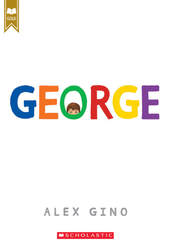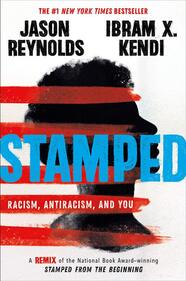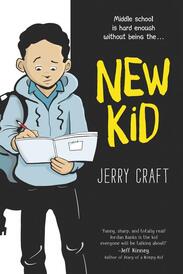by Rachel Skrlac Lo & Donna Sabis-Burns on behalf of the Diversity, Equity, and Inclusion Committee
Institutional Resources to Reject Book ChallengesThis right to access diverse literature and other texts is protected through professional organizations’ mission statements, codes of conduct, and other institutional practices. For example, the National Education Association (NEA) is an example of an institution that can support teachers and school districts responding to these challenges. The NEA, which has 3.2 million members across the nation, believes “every student in America, regardless of family income or place of residence, deserves a quality education” (website), which they support through their mission and actions. Because they are a large and far-reaching organization, their resources act as a standard-bearer, and thus can be used to guide districts' response to book challenges. The NEA’s Code of Ethics, briefly The NEA’s code of ethics is guided by two principles, the first of which is a commitment to the student. It has eight conditions, including that educators have an ethical duty to not: 1. “restrain the student from independent action in the pursuit of learning”, 2. “unreasonably deny the student’s access to varying points of view”, nor 3. “deliberately suppress or distort subject matter”. Additionally, educators must make an effort to: 4. “protect students from harmful conditions”, 5. “not intentionally expose the student to embarrassment or disparagement”, and 6. ensure all students have access to programs, benefits, and advantages regardless of “race, color, creed, sex, national origin, marital status, political or religious beliefs, family, social or cultural background or sexual orientation.” The two remaining conditions are that educators: 7. do not seek private advantage from relationships with students, and 8. will respect students' privacy. Using the Code of Ethics to Respond to Challenges Principle 1 lays out a daunting task for educators: how do we honor the humanity and dignity of all students when some of our beliefs are contradictory? Book challenges highlight this paradox. The adults behind the book challenges argue their children are harmed through the content of these books, and this harm can be manifested as feelings of discomfort, shame and embarrassment, or in exposure to ideas that may lead to “deviance”. According to Principle 1, then, these parents are claiming that being exposed to these books is a harmful condition (condition 4) that results in these children feeling embarrassed and disparaged whether due to sexual content of texts, such as in challenges to George/Melissa, or discovering the longstanding persistent impact of white supremacy, such as in Stamped (condition 5). Yet, if schools were to succumb to these challenges, the result would be changes to curriculum and school resources that would unfairly deny benefits (condition 6) to students who identify differently from the mostly white, mostly straight, mostly Christian, mostly politically conservative, mostly American parents who are leading these challenges. Moreover, by shifting school curriculum and materials based on this loud but small group, schools would further violate the code of ethics by restraining independent action (condition 1), such as access to a diverse and representative library collection. Students would be denied access to multiple points of view (condition 2) by restricting the scope of content and voices. This suppression would distort subject matter (condition 3) and would impede student progress (condition 6). Removing books based on outcry of a small but politically-motivated group violates most of the conditions of commitment to the student in the NEA’s code of ethics. Additionally, because educators must respect students’ privacy (condition 8), educators are guided by an ethical duty to protect students' identities because students warrant this protection of their full humanity. As such, educators must not be compelled to reveal which students need access to these books. We must trust educators when they say there are children who need these books. So, which students need access to these books? All students do. As CLA’s Position Statement on the Importance of Critical Selection and Teaching of Diverse Children’s Literature underscores: Children come to see themselves and their experiences represented in the stories they read and these stories can also provide insight into ways of living and knowing that depart from their own. This point alone makes access to diverse literature an ethical and moral imperative so that all students’ lives and languages are represented, especially those communities whose lives and language have been historically underrepresented in school settings (p. 2). Resisting book challenges, then, is not about supporting or denying an ideological position. It’s affirming our commitment to serve all students. By drawing on a code of ethics, or other institutional materials, educators can respond to these challenges with the support of their profession and an understanding that their desire to serve all students is morally and ethically just. Rachel Skrlac Lo, Ph.D., is an Assistant Professor at Villanova University. She is a Board Member (2020-2022) with the Children's Literature Assembly and Co-Chair of the Diversity, Equity, and Inclusivity Committee.
Donna Sabis-Burns, Ph.D., an enrolled citizen of the Upper Mohawk-Turtle Clan, is a Group Leader in the Office of Indian Education at the U.S. Department of Education* in Washington, D.C. She is a Board Member (2020-2022) with the Children's Literature Assembly and Co-Chair of the Diversity, Equity, and Inclusivity Committee. *The views expressed herein do not necessarily represent the positions or policies of the U.S. Department of Education. No official endorsement by the U.S. Department of Education of any product, commodity, service, or enterprise mentioned herein is intended or should be inferred. |
Authors:
|
CLA
About CLA
|
Journal of Children's Literature
Write for JCL
|
ResourcesCLA-sponsored NCTE Position Statements
|
Members-Only Content
CLA Video Library
|
© COPYRIGHT 2018.
ALL RIGHTS RESERVED |




 RSS Feed
RSS Feed